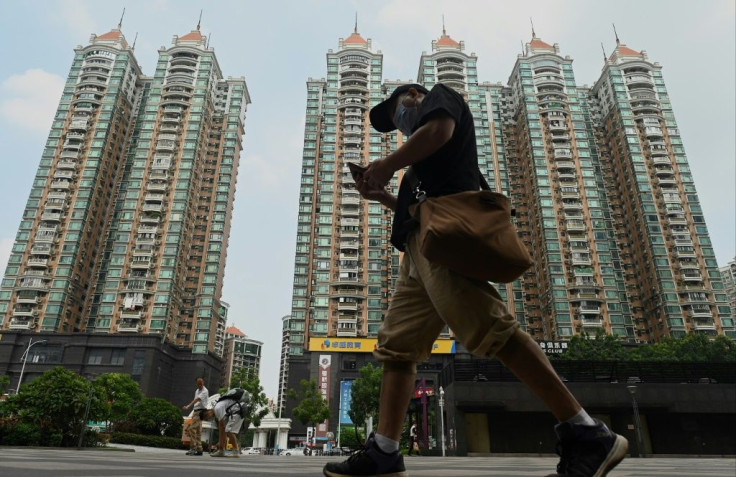China's Top Problem Isn't COVID
China's top problem isn't how to contain the spread of coronavirus. It will recede on its own, as has been the case in many countries worldwide without lockdowns.
But another problem, even more significant than coronavirus, won't go away any time soon: the burst of the housing property bubble. It could lead to a prolonged stagnation of the Chinese economy, far worse than the Japanese economy in the 1990s, with far-reaching consequences for Chinese society.
Average prices of new homes in 70 Chinese cities declined at an annual rate of 1.3% in August, the fourth month in a row, according to Tradingeconomics.com.
That's the worst decline since August 2015, adding to the financial woes of property developers like Evergrande, which defaulted on dollar-denominated bonds in December.
Falling home prices could push China into a severe economic crisis, as apartments are the most broadly held asset in Chinese society. They are as crucial as Treasury bonds in the U.S., as legendary short seller Jim Chanos explained in a recent CNBC interview.
Juscelino Colares, a business law professor at Case Western Reserve University, sees a storm brewing in both the housing and commercial real estate sectors. "China's housing and commercial real estate bubble, the result of the marriage between China's export-oriented growth model and the Chinese people's high savings-to-consumption ratio, is getting more serious by the day," he told International Business Times in an email.
The impact of the property bubble burst on China's economy is aggravated by a significant slowdown in the country's exports. "As the U.S. and European demand for Chinese goods plummets due to negative 'growth' or recession (not engaging in semantics here), the Chinese Communist Party (CCP) must adjust growth targets downwards," Colares added.
China is also facing many problems, like the middle-income trap. In this situation, emerging market economies strive to transition from imitation-driven to innovation-driven growth. Unfortunately, it's a process that slows down economic growth.
Then there's the Lewis point, a situation where emerging market economies run out of excess labor to power their labor-intensive industries.
In the case of China, this problem is magnified by plummeting marriage rates and a shrinking labor force. As a result, China finds it hard to compete with labor-rich countries like Sri Lanka, Vietnam, the Philippines and Bangladesh.
The combination of these problems can explain the rush of the Chinese government to control the consequences of the bubble's burst ahead of the CPC Congress. For instance, to bail out ailing property developers, the People's Bank of China has already cut interest rates a few times when other central banks have been raising them.
Then there is the escalation of the COVID-19 lockdowns, which make it easier for the government to expand the surveillance of the Chinese citizens to prevent staging any protests ahead of the party Congress.
"Lockdowns have the unintended consequence of removing a variety of factors that would have been more difficult for Chinese surveillance to deal with," Riccardo Cociani, an Asia Pacific intelligence analyst at Sibylline, a global consulting firm, told IBT. "The characteristics of China's Covid-19 restrictions, including on the cyber sphere, are a continuation of trends and measures already present before the COVID-19 pandemic."

© Copyright IBTimes 2024. All rights reserved.






















